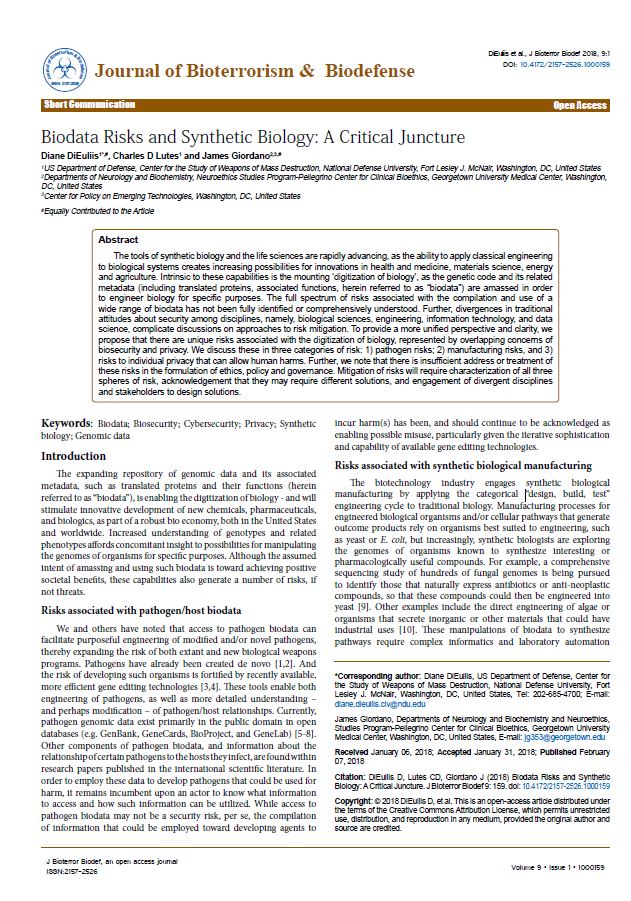
Biodata Risks and Synthetic Bio
The tools of synthetic biology and the life sciences are rapidly advancing, as the ability to apply classical engineering to biological systems creates increasing possibilities for innovations in health and medicine, materials science, energy and agriculture. Intrinsic to these capabilities is the mounting ‘digitization of biology’, as the genetic code and its related metadata (including translated proteins, associated functions, herein referred to as “biodata”) are amassed in order to engineer biology for specific purposes. The full spectrum of risks associated with the compilation and use of a wide range of biodata has not been fully identified or comprehensively understood. Further, divergences in traditional attitudes about security among disciplines, namely, biological sciences, engineering, information technology, and data science, complicate discussions on approaches to risk mitigation. To provide a more unified perspective and clarity, we propose that there are unique risks associated with the digitization of biology, represented by overlapping concerns of biosecurity and privacy. We discuss these in three categories of risk: 1) pathogen risks; 2) manufacturing risks, and 3) risks to individual privacy that can allow human harms. Further, we note that there is insufficient address or treatment of these risks in the formulation of ethics, policy and governance. Mitigation of risks will require characterization of all three spheres of risk, acknowledgement that they may require different solutions, and engagement of divergent disciplines and stakeholders to design solutions. READ MORE >>>